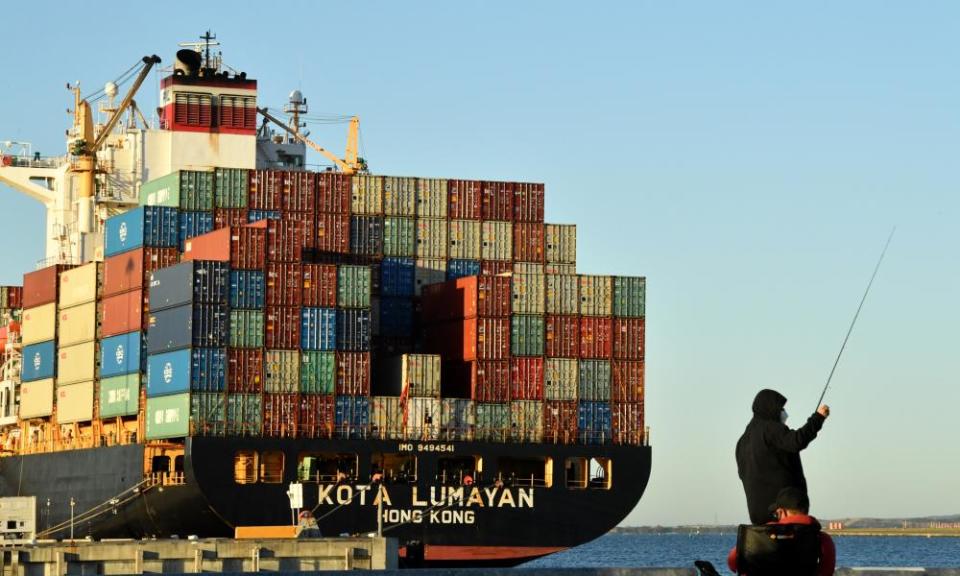‘Prices going up’: competition watchdog tells governments to limit asset sales as public loses trust

Competition watchdog Rod Sims has called for curbs on state and federal government privatisations, saying the public has lost trust after seeing prices rise following asset sell-offs.
The Australian Competition and Consumer Commission (ACCC) chair said assets that governments are earmarking for sale should either have to pass a competition assessment before being sold, or otherwise face regulation if they have significant market power.
While monopolies including gas pipelines, electricity networks and the NBN are regulated, others such as airports and ports are not.
Related: Prolonged Sydney lockdown could tip Australia into another recession, economists say
Governments also pump up the prices of assets by selling them with sweeteners such as a ban on competition attached.
In New South Wales, the ACCC is challenging an agreement between the state government and two ports it sold off, Port Botany and Port Kembla, that effectively stops the development of a container port in Newcastle. Last month, the ACCC lost a federal court case against the deal, which requires the government to pay compensation to Port Botany and Port Kembla if a significant amount of containers flows through Newcastle. The regulator is appealing the decision.
The Newcastle port is hoping to containerise in order to reduce its reliance on coal exports, which currently make up about 95% of traffic and are making securing finance difficult.
Sims named the $4.2bn sale of Sydney Airport, 20 years ago, as one of the worst he had seen.
The state government rolled back regulation of the airport to increase the sale price, he said.
“Not only did they not impose it – it was already there and they took it away to maximise the proceeds of sale – but also they gave Sydney Airport owners the first right of refusal over any other airport to be built,” he said.
“I mean, just appalling.”
He said the removal of this right by the state government meant Sydney Airport would finally face competition from a new airport in western Sydney.
“You’ve had the Port of Melbourne, where the original idea was to put up land rents that the port could charge the stevedores by 750% and not allow a competing port to be built for 50 years.
“Now we agitated about that and got that 750 down to 30% and 50 years down to 15, but it was a bit of a fight.”
He also has concerns about the dominance of e-conveyancing platform Pexa, which hooks into the state and territory land title systems.
It was jointly owned by NSW, Victoria, Queensland, WA, the big four banks, Macquarie Group, Link Group and billionaire Paul Little until it was sold to a consortium made up of Link, the Commonwealth Bank and Morgan Stanley Infrastructure for $1.6bn in 2018.
Sims said the sales of Qantas and Telstra were examples of good privatisations “done to improve economic efficiency, because the government wasn’t an efficient owner of those assets and needed to get someone who could run them more efficiently”.
“Now, we seem to be in a world where you’re privatising to maximise the proceeds of sale – which is fine if you’re selling your car.
“It’s not fine if you’re a government, and you’re limiting competition, you’re closing off competition so you get a higher price for the asset, and having created a monopoly, not regulating it so that it’s got unfettered market power.”
He said the badly run sell-offs “cost the economy an enormous amount” and the public had turned against privatisation.
“Why don’t the population like it? Because they see prices going up,” he said.
“So, the public have worked this out, and we won’t get more privatisation. For those who want more privatisation, my point would be do it properly.”

 Yahoo News
Yahoo News 